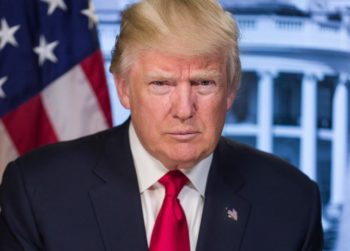In the latest Reuters/Ipsos poll, Republican challenger Donald Trump has taken a slight lead over President Joe Biden in the run-up to the November presidential election. The poll, which concluded on Tuesday, indicates that 41% of registered voters would cast their ballot for Trump if the election were held today, compared to 39% for Biden. This marks a shift from the previous poll conducted at the end of May, where Biden led Trump by the same margin, 41% to 39%. However, Trump’s lead falls within the poll’s margin of error, suggesting that the race remains highly competitive.
Interestingly, the poll reveals that 20% of voters are still undecided, leaning towards third-party candidates, or considering not voting at all. This level of uncertainty could play a pivotal role in the outcome of the election. Additionally, Robert Kennedy Jr., an independent candidate and known anti-vaccine activist, holds steady with 10% of the vote, unchanged from the previous survey. The dynamics of the electoral college, which ultimately decides the presidency, underscore the significance of these polling figures, especially in key battleground states.
Voter Concerns and Candidate Liabilities
Both Biden and Trump face significant challenges as they vie for the presidency in what is set to be a contentious election. President Biden, at 81, confronts concerns about his age and capability to lead, compounded by discontent within his own party regarding his stance on international conflicts, particularly his support for Israel’s actions against Hamas militants. This discontent has sparked protests across U.S. universities, highlighting the potential for a significant impact on young voter turnout, a crucial demographic for the Democratic Party.
Moreover, Biden’s campaign has been marred by the criminal conviction of his son, making him the first sitting president with a convicted child. Despite this, the Reuters/Ipsos poll suggests that the conviction has not significantly swayed voter opinions. On the other hand, Trump also carries the burden of his own legal troubles. He recently became the first former president to be convicted of a crime, facing 34 charges related to hush money payments to an adult film actress during the 2016 election. Trump’s sentencing is scheduled for July, and the potential prison time looms over his campaign.
The Impact of Third-Party Candidates and Swing States
The presence of third-party candidates, particularly Robert Kennedy Jr., introduces an additional layer of complexity to the election. With Kennedy holding a consistent 10% in the polls, his candidacy could siphon off votes from the main contenders, potentially altering the dynamics in key swing states. Historically, third-party candidates have had the power to influence the outcome by drawing votes away from the major parties, making their role in this election particularly noteworthy.
Nationwide polls provide a broad overview of candidate support, but the U.S. electoral system means that the ultimate decision lies in the hands of a few competitive states. These battleground states, with their shifting allegiances and diverse voter bases, will be crucial in determining the next president. Both campaigns are likely to focus their efforts on these areas, tailoring their messages to resonate with local concerns and issues. As the election date approaches, the strategies and events in these pivotal states will be closely monitored, with each candidate aiming to secure the critical electoral votes needed for victory.
Majority of Voters Unaffected by Hunter Biden’s Conviction
A recent Reuters/Ipsos poll has revealed that an overwhelming 80% of registered voters indicated that the conviction of Hunter Biden, President Joe Biden’s son, is unlikely to influence their voting decisions in the upcoming elections. This sentiment reflects a significant indifference among the electorate towards personal legal issues affecting political figures. Despite the potential for media coverage and political discourse around Hunter Biden’s legal troubles, the findings suggest that voters are more focused on broader political issues and policies rather than individual controversies.
The survey, conducted nationwide among 930 registered voters, highlights a prevailing perspective that personal scandals may not be pivotal in swaying electoral choices. This could indicate a growing resilience or skepticism among voters regarding the impact of such events on the overall political landscape. The results underline the complexity of voter motivations and the multifaceted nature of electoral decision-making in contemporary politics.
Trump’s Legal Battles Also Seen as Non-Influential for Many Voters
In a similar vein, the Reuters/Ipsos poll found that 61% of voters reported that former President Donald Trump’s legal challenges are not affecting how they intend to vote. Trump, 77, is currently embroiled in three other criminal prosecutions. These cases involve allegations that he attempted to overturn his 2020 election defeat and mishandled sensitive documents after leaving office in 2021. Despite the gravity of these charges, the poll results indicate a majority of voters remain steadfast in their political allegiances and choices.
Trump has pleaded not guilty to all charges, and ongoing legal maneuverings may delay these cases from proceeding to trial before the November election. This delay could further diminish their potential impact on voter perception and behavior. The poll’s insights suggest that, similar to the reaction to Hunter Biden’s conviction, many voters are possibly prioritizing other factors over the legal entanglements of political leaders when it comes to casting their votes. This trend highlights a critical aspect of the current political climate, where legal issues, regardless of their severity, might not substantially alter the electoral landscape.














